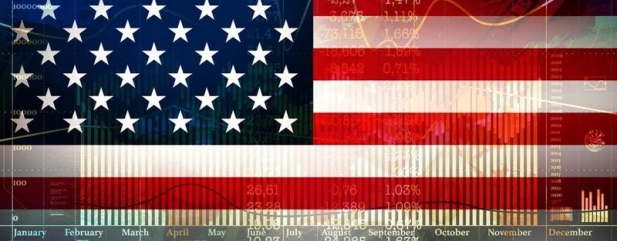Strong labour market continues to undermine case for Fed rate cuts

To paraphrase pop singer Britney Spears, ‘oops, it’s done it again’ would probably be a fair response to last week’s US non-farm payrolls which once again blew past expectations and dashed any lingering hopes of an early cut in interest rates.
Rather than 214,000 news jobs being added last month there were 303,000 new roles created, making March the 39th straight month of employment growth and suggesting the economy is a long way from going into recession.
There was slight comfort from the fact wage growth slowed somewhat, but it remains stubbornly above the Federal Reserve’s target of 3% to 3.5% and the recent bump in crude oil means gasoline prices are going up which won’t help bring inflation down either.
Market commentators put the strength of the labour market down to ‘US exceptionalism’, although the main areas of growth last month appeared to be in government and the health care sector.
Construction was another area of growth, which makes sense as the seasons change and the weather improves, and leisure and hospitality returned to its February 2020 (pre-pandemic) level for the first time.
Investor confidence will face another test on Wednesday, just before Shares goes to press, in the shape of the US consumer price data and in particular the ‘core’ reading which strips out food and energy prices to give an underlying reading of inflationary pressures.
Outside the US there is an ECB (European Central Bank) meeting, where rates are likely to be kept on hold a while longer, and UK February GDP which is also unlikely to surprise.
Next week’s focus will be on UK and euro-zone inflation, where as in the US the ‘core’ reading will be closely watched, along with the German ZEW investor sentiment survey which has been particularly gloomy in recent months.
Important information:
These articles are provided by Shares magazine which is published by AJ Bell Media, a part of AJ Bell. Shares is not written by AJ Bell.
Shares is provided for your general information and use and is not a personal recommendation to invest. It is not intended to be relied upon by you in making or not making any investment decisions. The investments referred to in these articles will not be suitable for all investors. If in doubt please seek appropriate independent financial advice.
Investors acting on the information in these articles do so at their own risk and AJ Bell Media and its staff do not accept liability for losses suffered by investors as a result of their investment decisions.
Issue contents
Feature
Great Ideas
News
- Britvic shareholders left feeling flat as stock price decline continues
- Shareholders in Pinewood Technologies set for bumper special payout
- Can Dunelm demonstrate there’s no place like home?
- Can Johnson & Johnson beat first quarter expectations again?
- Strong labour market continues to undermine case for Fed rate cuts
- UK finance officers are bullish which is good news for the economy
- Could rising oil prices derail interest rate cuts?
- What is Microsoft-backed Rubrik, the latest firm to IPO in the US?

 magazine
magazine








